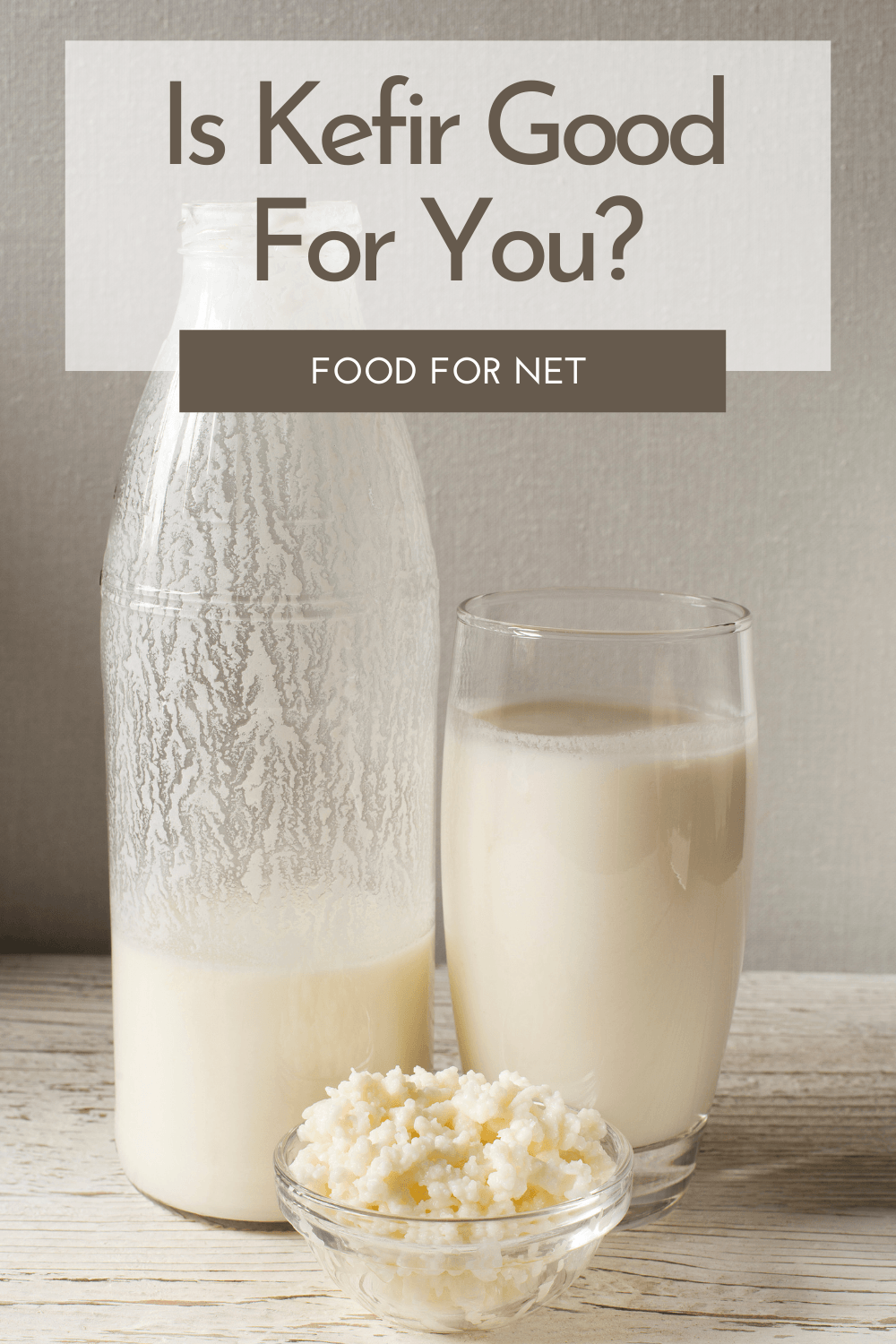
Fermented foods and drinks continue to be incredibly popular. This isn’t surprising either, as the probiotics in these products are thought to boost your health in countless ways. But, with so many types to choose from, how do you know which fermented foods are best? In this post, we’re taking a close look at one of your options – kefir. We want to know, is kefir good for you?
There are a few different areas to think about when answering this question. One is the probiotics themselves. We know that probiotics can be helpful, even powerful, in some situations. What’s less clear, however, is whether probiotics are always a good thing.
Let’s not forget about the dairy side of things either. Kefir is generally made from milk and there’s no end to the debate about whether milk is helpful or harmful.
Finally, there are some risks and side effects to think about. With all that in mind, let’s look at how the pros and cons of kefir balance out – and work out whether kefir is a healthy choice for you.
Is Kefir Good For You?
- What Is Kefir?
- Benefits Of Kefir
- How Kefir Might Cause Problems
- Kefir Versus Kombucha
- What About Water Kefir
- How To Choose Healthy Kefir
- How Powerful Are Probiotics Really?
- Final Thoughts
What Is Kefir?
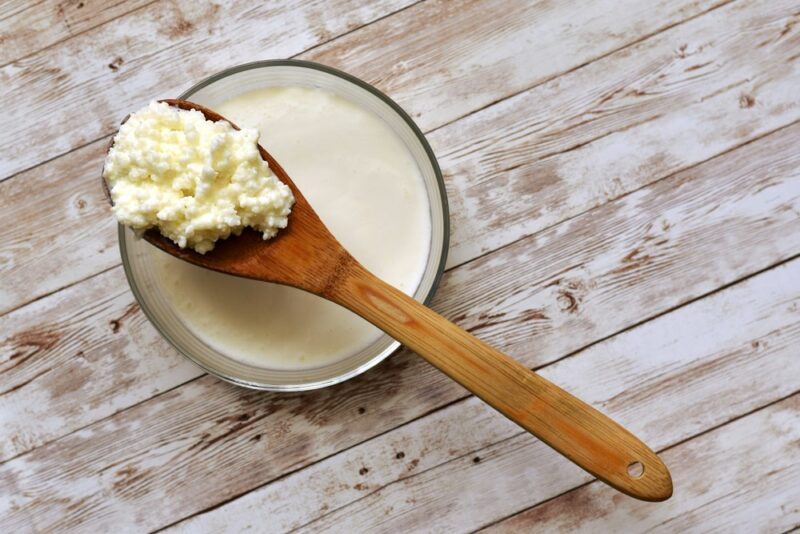
Kefir is a fermented drink, made from any type of milk, including cow’s milk, goat’s milk, or sheep’s milk. It has a long history and is thought to have first been created centuries ago, near present-day Turkey.
Legend has it that the knowledge of kefir was passed down from one generation to the next, with the kefir grains being closely guarded so that outsiders would never learn how the drink was created.
It wasn’t until early in the 1900s that kefir grains made their way outside their traditional culture. By the 1930s, kefir was being commercially produced in Russia and its popularity continued to spread. It can now be found in many parts of the world, either purchased commercially or made at home.
Like most fermented foods and drinks, kefir begins with a starter culture. For kefir, this culture is known as kefir grains. The grains consist of a polysaccharide matrix that also contains a collection of bacteria and yeast.
The bacteria and yeast are the probiotics – healthy bacteria that may improve your health.
Kefir itself relies on these grains and milk. You end up with a fermented milk drink that tastes a little like yogurt. Some places produce kefir commercially, so you can often find it sold at local stores.
There are also plenty of places to find kefir grains, so you can easily make the drink at home yourself.
Benefits Of Kefir
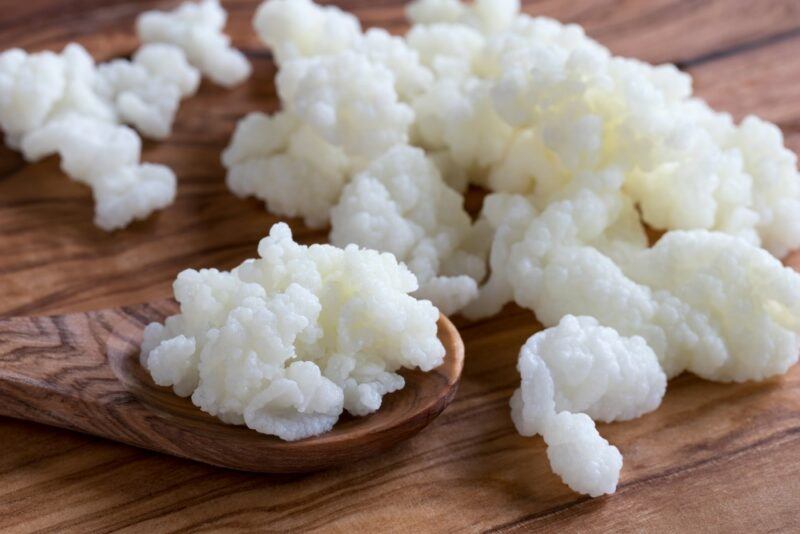
Kefir Contains Probiotics
Most people drink kefir because of the healthy bacteria it contains – the probiotics. The field of probiotics is fairly new and very exciting, as we’re realizing that bacteria play a huge role in human health.
This happens because our guts naturally contain a large selection of microbes, including bacteria, fungi, and even viruses. We may have around 100 trillion of these microbes, which create what we now call the microbiome.
Scientists are now saying that it’s best to think about our gut as a type of virtual organ – one that needs to be kept healthy just like every other organ in our body. The health of your microbiome isn’t just related to the number of microbes present, but also to the types.
As a rule of thumb, the more diverse the microbes in your gut, the healthier you are.
Probiotics help because they provide a dose of living beneficial bacteria. The microbes in kefir, yogurt, and other probiotics, should help to ‘restock’ the ones in your gut, improving the function of your microbiome and leading to a variety of health benefits.
Indeed, studies suggest that kefir can help to improve the immune system, suppress cancer tumors, improve cholesterol metabolism, fight bacteria, and increase the speed of wound healing. That’s an impressive list of benefits and we’re likely to discover more as time goes on.
Kefir May Be More Potent Than Yogurt
Many of us turn to yogurt for our probiotics. Kefir offers the same benefits as yogurt, but often contains even more strains of bacteria, along with some yeasts.
The specific microbes that are present will vary based on a range of factors, like how the kefir is made and the specific starter culture that was used. Even so, you are looking at a powerful probiotic.
There Are Important Nutrients Too
Kefir is fermented milk, so it contains the important nutrients that you find in milk, including calcium, vitamin B12, magnesium, and phosphorous.
These all play various roles in your health. Calcium, for example, is linked to strong bones, along with the function of your nerves and your muscles. There’s also some protein present, this helps to decrease your hunger and is important for muscle growth and other functions in your body.
The balance of nutrients means that kefir offers many of the same benefits as regular milk. The difference is that you’re getting plenty of probiotics as well.
It’s Easy To Drink
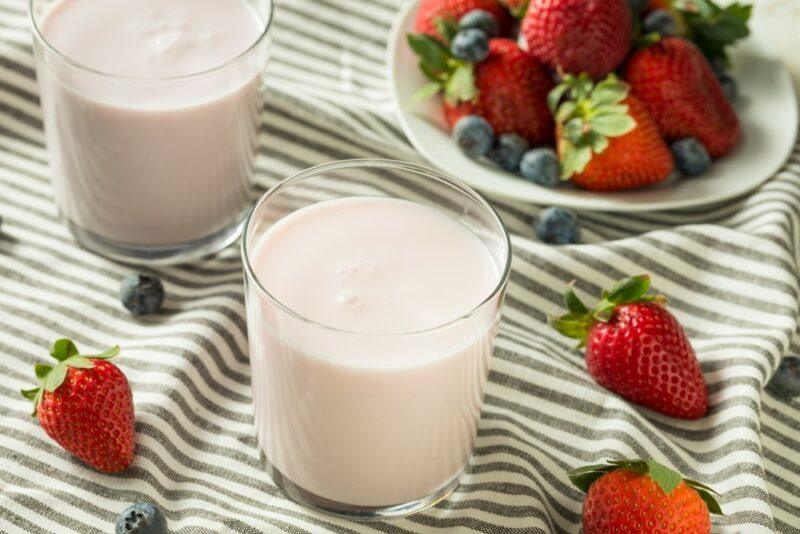
Kefir is a fantastic introductory fermented drink, as it is creamy, milk-based, and tastes delicious. While kefir has a slight sour taste, this is normally less distinctive than the sour flavor of kombucha or even Greek yogurt.
Kefir is often flavored too, making it even more accessible.
How kefir tastes is important, as many types of fermented food and drink have strong flavors. They can be difficult to consume at first, especially if you don’t eat fermented foods very often.
Kefir May Improve Digestion
Probiotics are most well-known for their digestive benefits. This isn’t too surprising, as your gut plays a huge role in your digestion. Plus, any serious digestive problems, including irritable bowel syndromes, ulcers, diarrhea, or constipation, may indicate that your gut microbiome is out of balance.
Because of this, anything that helps to rebalance your gut bacteria should improve your digestion as well.
This isn’t just a theory either. Studies have shown that probiotics really can help with your digestion.
The Lactose Content Is Low
Kefir does contain lactose (it’s made from milk, so that’s hardly surprising). However, the lactose content is much lower than in regular milk.
This happens because the fermentation process turns some of the lactose in the milk into lactic acid. The lower amount of lactose means that some lactose intolerant people can drink kefir without a problem.
Some theories even suggest that drinking kefir regularly could decrease your lactose intolerance over time.
You will still need to experiment for yourself. People vary in their responses to lactose and some do get some symptoms with kefir, while others have no issues at all.
How Kefir Might Cause Problems
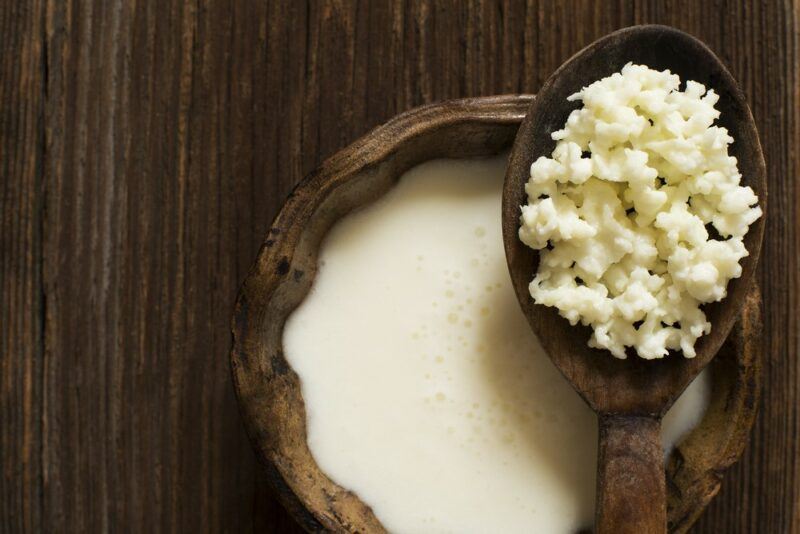
It’s Made From Milk
Even with the decreased lactose content, kefir is still made from milk. This could still be a problem for anyone who avoids milk for ethical or dietary reasons.
Milk isn’t exactly a poster child for health these days either. Many people aren’t at all convinced that milk is healthy (partly because of the saturated fat content).
There are also concerns that milk might increase inflammation or have various other negative health impacts. It’s difficult to say whether this is the case or not. Plenty of research has found benefits from milk, but many of those same benefits can be found with other foods too.
In the end, you’ll need to pay attention to your own body and decide for yourself.
There Are Side Effects
Kefir is often linked to digestive side effects, like constipation, stomach cramps, bloating, and nausea. These side effects are often strongest when you first start drinking kefir and should decrease over time, as your body adjusts.
To avoid the worst of these side effects, try starting slowly with kefir and increasing your dose as you go.
If the side effects seem very strong or sudden, it may be best to stop with the kefir and perhaps even talk to your doctor. Such side effects could mean that you have a bad batch of kefir.
You Still Need To Be Cautious
Kefir research suggests many potential benefits, but there are still gaps in our knowledge. Remember that kefir is made by promoting the growth of microbes. We’re talking about healthy microbes, true, but the same conditions might lead to dangerous microbes as well.
This is particularly true if you make kefir at home. Contamination of your batch could easily lead to a drink that makes you sick.
Kefir may also be risky for people with compromised immune systems, digestive problems, and pregnant women. People falling into these groups should be cautious with kefir and watch closely for any side effects.
Kefir Versus Kombucha
Kombucha is easily the most popular probiotic drink, but kefir is catching up fast. The drinks have some similarities, in that they’re both fermented, have some fizz to them, and provide probiotics.
There are also differences to think about.
After all, kombucha uses tea and water as the base ingredients, while kefir relies on milk instead. As a result, kefir tends to be higher in calories than kombucha, but does contain more nutrients as well.
There’s variation in the flavors too. Kefir is often similar to slightly fizzy drinkable yogurt. It has a slight fermented tang to it, but this often isn’t very strong.
Kombucha, on the other hand, has a strong and distinctive flavor that can be difficult to get used to. While many people do love kombucha, others prefer to focus on other types of fermented drinks instead.
Kefir is also easier to make at home than kombucha. This may be another reason for trying it.
However, you don’t need to choose between kefir and kombucha. You can easily enjoy both types of fermented drink in your diet. Doing so may be the most powerful option anyway, as the drinks differ in their microbial content. Because you get the most benefits from a diverse microbe, consuming various types of fermented food is healthier than just focusing on one or two.
What About Water Kefir?
You can also find water kefir. This is made with similar kefir grains. The difference is that regular kefir relies on milk, while water kefir doesn’t.
As a result, water kefir ends up being dairy free, making it suitable for vegans and anyone who is lactose intolerant. Plus, water kefir helps you avoid all the potential issues with dairy.
Despite the name, water kefir isn’t always made with water. Some versions rely on coconut water or fruit juice instead. You can even make kefir using coconut milk.
While recipes vary, water kefir always ends up being a lighter drink than regular kefir. Water kefir is also lower in calories and may have a slightly sweet flavor. You can make plain water kefir, but most people choose to flavor it instead.
Water kefir ends up being a healthy alternative to soda, one that’s much lower in sugar and contains plenty of probiotics.
However, water kefir doesn’t offer all the nutrients that you get with regular kefir, so it might not be as good for you.
How To Choose Healthy Kefir
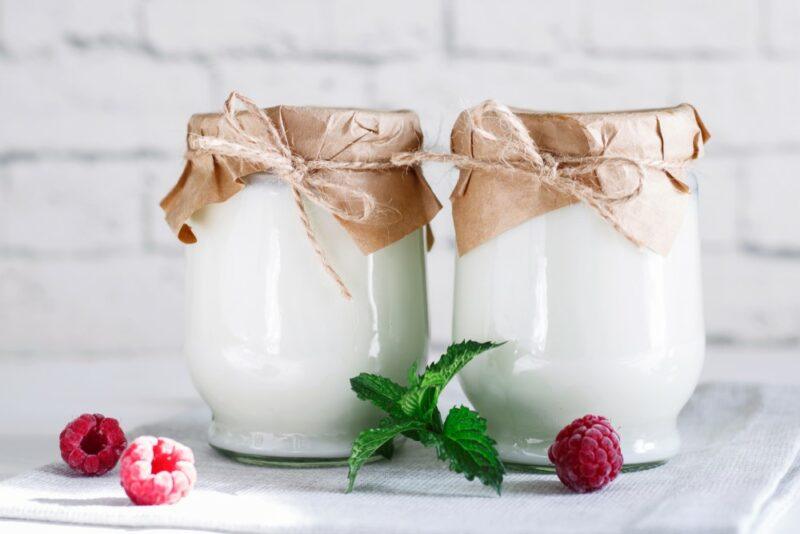
There are a few things to think about when buying kefir. The first is whether the product has been pasteurized.
Pasteurization is a technique for making food safe. It involves mild heating to kill the harmful bacteria – a process that may also destroy the probiotics. The best way around the problem is to look for kefir that hasn’t been pasteurized.
A second thing is how the kefir is created.
While kefir is traditionally made from kefir grains, large companies rarely use the grains themselves. Instead, they rely on starter cultures using microbes that were isolated from kefir grains.
It’s not clear whether those commercial starter cultures offer the same benefits as kefir made using the grains.
These two areas mean that the best kefir will often be the stuff that you make yourself. If this isn’t an option, look for small scale companies, ones that rely on authentic techniques.
How Powerful Are Probiotics Really?
There’s one final thing to mention with kefir. It’s clear that probiotics can provide many benefits, but there’s still an absurd amount of hype surrounding probiotics.
For one thing, remember that this is still a fairly new field. There are plenty of gaps in our knowledge.
That’s not too surprising, is it? After all, there are trillions upon trillions of microbes in our gut. Even just identifying them all could take lifetimes, let alone figuring out what they do and how they interact with each other.
The health benefits of drinks like kefir happen because the probiotics in your drink can add to the collection of probiotics in your gut. These new probiotics may fill in some gaps and offer extra functions.
However, this effect might only happen if the microbes in the probiotic help to fill a gap. You might not see any benefits at all if your gut microbiota is already well-balanced.
This may be why some people see benefits from probiotics and others don’t.
This limitation acts as a reminder that probiotics are just one part of a healthy diet. Enjoy them, by all means, just don’t expect probiotics to dramatically change your health overnight.
Final Thoughts
Kefir is a safe and delicious drink that clearly offers many benefits. It’s also pretty easy to make at home or to find at local stores.
The biggest issue is that kefir traditionally relies on milk, making the drink a poor choice for some people. You can turn to water kefir instead, but that version contains fewer nutrients than regular kefir.
Some people experience side effects too, even if they’re not lactose-intolerant.
Such issues are a reminder to always listen to your own body. If kefir makes you feel better, improves your mood, or helps you lose weight, then it may be an excellent choice. But, if it often makes you feel sick instead, perhaps it’s time to try a different type of probiotic.
Frequently Asked Questions
What Does Kefir Taste Like?
Kefir is a milk-based drink that looks and tastes much like drinkable yogurt. The biggest difference is a distinct sour smell and taste, which makes kefir stand out. There is also a slight fizziness from the fermentation.
Of course, the flavor varies depending on the product you buy or make. Some versions are very mild, with only a slight sourness, while others are more distinctly sour or have even been flavored.
Does Kefir Cause Liver Damage?
There’s no evidence that kefir harms your liver. It may actually have the opposite effect, by decreasing fat around your liver and reducing the symptoms of fatty liver disease.
Is Kefir Dairy Free?
Regular kefir is made by fermenting milk, so it’s certainly not dairy free.
However, kefir grains can be used with other base liquids, including water and even juice. This approach gives you a dairy free drink, although the flavor and texture are quite different than dairy kefir.
Is Kefir Good For Acid Reflux?
Kefir doesn’t initially sound like a great choice for acid reflux, as it is fairly high in carbs and is also acidic. However, kefir is also a source of probiotics, ones that can help to balance your gut bacteria and improve your symptoms.
To get these benefits, you may need to start with small amounts of kefir, then increase your intake as your tolerance grows. It’s also best to make the kefir at home, as this helps ensure there’s a high probiotic content.
It’s also important to pay attention to yourself. You might find that the acidity of kefir is too much and that it makes your symptoms worse. If this is the case, you could skip kefir and turn to another source of probiotics instead.
How Much Kefir Should I Drink?
This is another area where it’s important to pay attention to your body. We all have different needs and respond to foods in our own ways.
With kefir, you’re looking for amounts that feel good and are enjoyable. This is often somewhere between 1 and 3 cups per day (if you’re new to kefir, try starting with half a cup per day for a while, as it takes your body time to adjust).
If you get distinct side effects from kefir, then it might be time to cut back or try a different type of probiotic entirely.

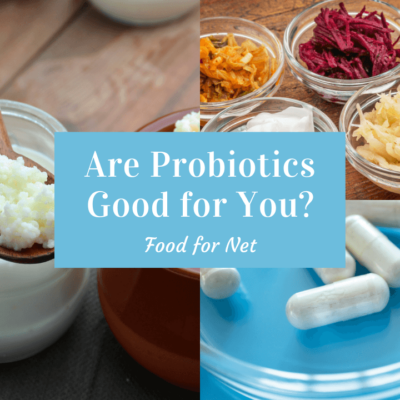


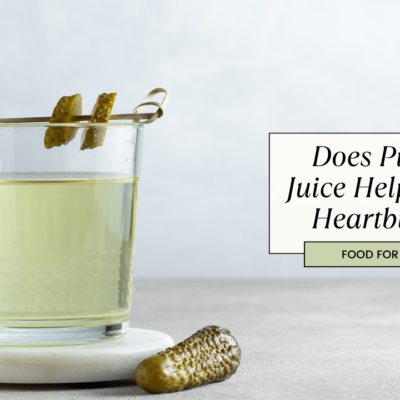


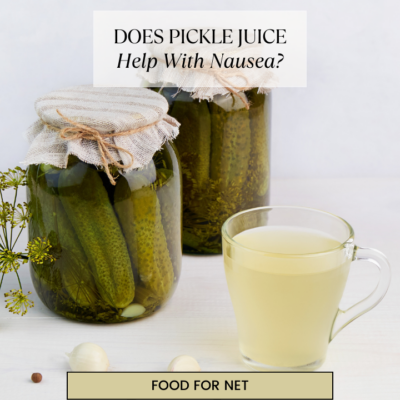

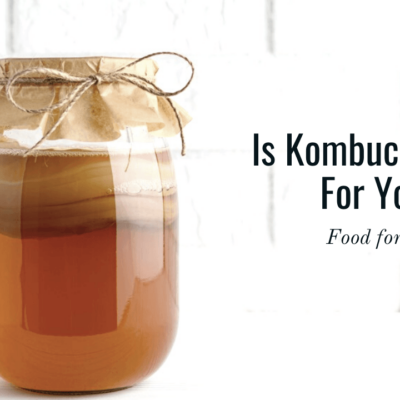
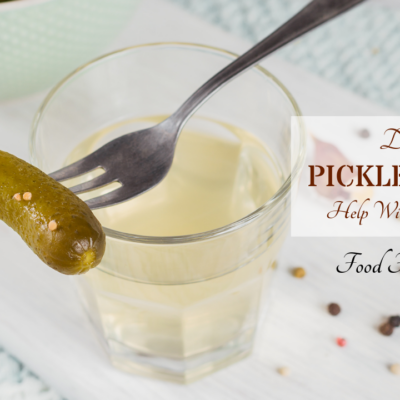
 The Best Coconut Liqueur
The Best Coconut Liqueur
Leave a Reply